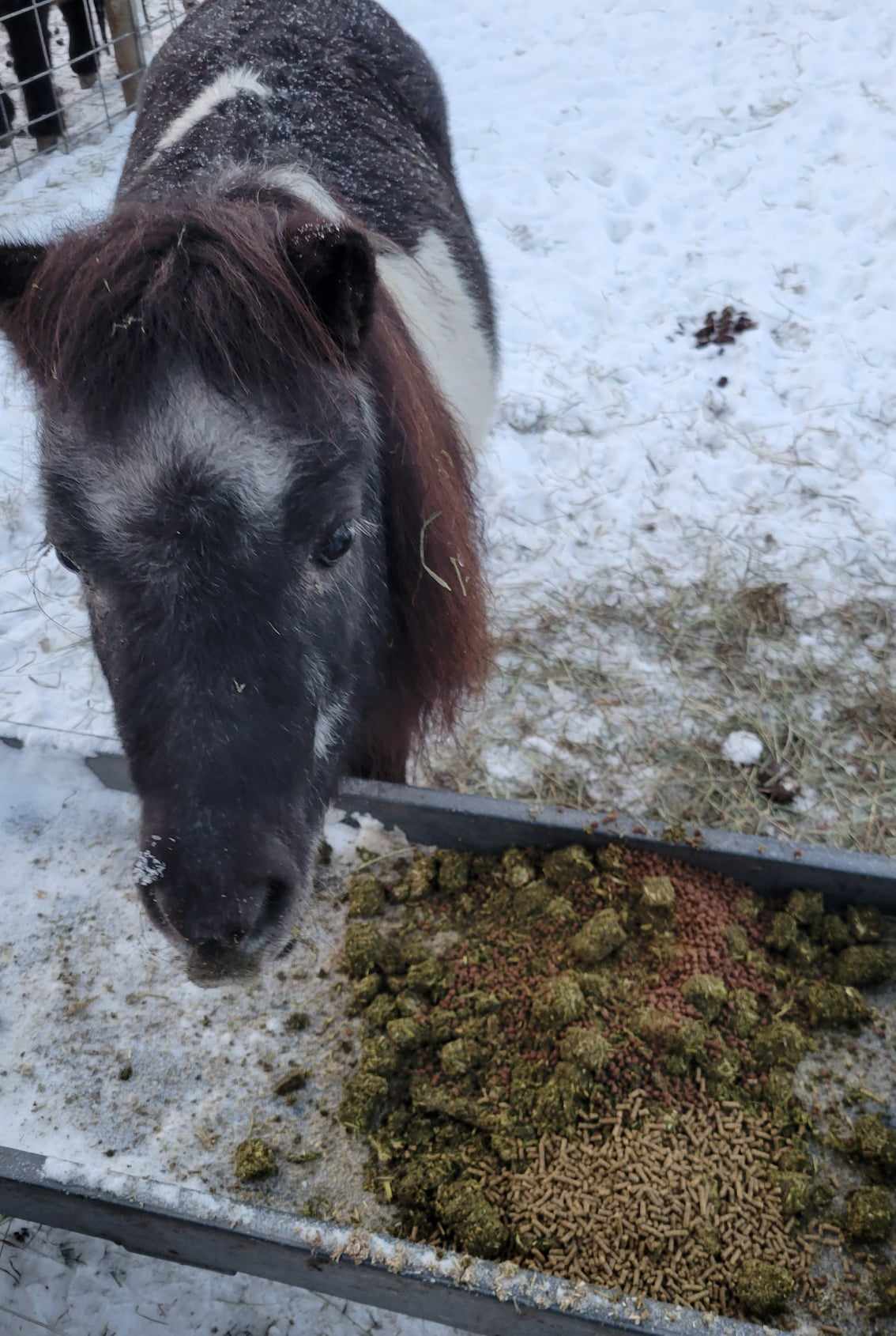Today on Senior Miniature Horse Week, we’re talking about feeding our elderly friends.
Like anything related to feeding, there’s no “one right way” and the best thing you can learn is how to Body Condition Score your horse, monitor them carefully, and make adjustments as needed. Remember to actually put your hands on them to feel for condition – you can’t see through a winter coat. You can learn more about BCS here: https://youtu.be/6wyUj1mUOoc?si=zB-_gxyZ5qT17p4E
But there are special considerations for older horses that are important to be aware of when you’re managing their diet.
The first, we talked about yesterday: senior horses are prone to dental issues. Once they no longer have the dentition to chew hay, and are “quidding” which is spitting out chewed up bits of hay, then not only are they not getting the nutritional benefit of their hay, they are also at serious risk of choke.
The forage portion of a horse’s diet is important, but there are alternatives to long stem hay or grass that horses without a good grinding surface are still able to eat. My senior horses who can no longer eat hay do very well on soaked hay cubes as a forage alternative, but chopped hay, soaked hay pellets, and senior feed are all viable alternatives as well.
Teeth aren’t the only consideration – even senior horses with good teeth may have difficulty maintaining their weight. Their digestive tract becomes less adept at absorbing nutrients as they age, so horses fed long stem forage and whole grains for supplementation might not be able to get the benefits. Instead, an extruded feed is beneficial, so that the nutrients are more easily digestible.
Most extruded senior feeds are not only specially formulated with accessible nutrition needed by senior horses, they also include enough fibre to allow the feed to be a complete diet for those horses who need it.
Regardless of which complete feed brand you choose, check that it is low in sugar/starch, to be safe for horses with metabolic issues (common in senior horses) as well as in an extruded feed so they get the most benefit from every bite. And if you are looking to help them gain weight, you will need to feed more than you think – check the recommendations on the bag. There are also high fat/low starch supplements that might be more appropriate if your horse is still able to eat hay, but needs some help gaining weight.
And one of the best ways I’ve found to get an older horse to gain weight is when they’re diagnosed and treated for PPID (Equine Cushings Disease) – if you have a hard keeper, it’s worth it to test.
Soaked feed is also a good way to make sure your senior citizen is getting plenty of hydration, especially in the winter months, and access to salt, or even adding a small amount to their feed, will encourage them to drink.
We have had horses live over a decade on a diet of soaked hay cubes – they really do very well on forage alternatives when hay is no longer an option for them. It isn’t always easy – for ten years and counting (since the horses moved here) I have lugged a big pail of hay cubes back and forth to the house to soak with hot water for the next meal for my mush eating old folks, and I know there are those who have an even bigger challenge to get soaked feed to their horses.
I promise though, it’s worth the trouble – in many cases, changing their diet to something more easily chewed and digested can really give your special old friend a new lease on life.
